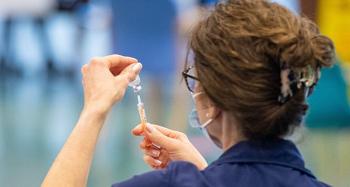Immune but infectious: Can someone vaccinated against COVID-19 still spread the virus?
As the cross-Canada roll-out of COVID-19 vaccines continues this week, it’s still unclear whether the injections can actually prevent the spread of the virus.
While both the Pfizer-BioNTech and Moderna products have been shown to be about 95 per cent effective at preventing symptomatic COVID-19 illness, there is not much evidence they can protect those around the person who got the shots.
El Sahly was one of the lead investigators for Moderna’s late-stage COVID-19 vaccine trial. She says the novel coronavirus can live in the nasal passage for weeks, meaning a vaccinated person could still infect others, even if they don’t get sick. But there was one promising result in the study.
“We did find, in the short term, that those who got the vaccine were less likely to carry [the virus], but the numbers were really small,” El Sahly said.
Both the Moderna and the Pfizer vaccines require people to get two doses, about a month apart, to be effective.
Twenty-nine days after their first dose of Moderna, 14 study participants were found to be carrying the virus — versus the 38 people who received a placebo.
Dr. Jason Kindrachuk, Canada Research Chair in Emerging Viruses, explains the mRNA-based vaccine teaches our immune system to fight the virus, but it doesn’t block it from entering our body.
“People may be able to still get infected even though they’re vaccinated, but it’s a sub-clinical infection — so they don’t feel sick, they don’t have any symptoms, but they may still be able to transmit,” said Kindrachuk.





